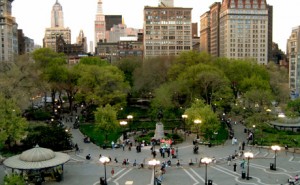
In a neighborhood where restaurants helped recreate its condition, these same restaurants are now being forced to relocate due to an unreasonable raise in rent.
Union Square Café is being forced to close its doors after thirty years of dedicated service to their neighborhood. When the café first moved in, the location was a home to drug users. Now, thirty years later, due largely to the café’s focus on employing local produce grown and provided by a farmer’s market half a block away, the neighborhood is thriving as the home of the largest farmer’s market in the city.
However, even with this amazing community outreach and improvement, the café has been forced to move on due to an unreasonable raise in rent rates, according to an article recently completed by The New York Times. At the end of next year, the café will forfeit its lease and be forced to relocate to a location that has yet to be determined.
The article mentions that the Union Square Café is not the first to be forced out of a home they recreated as a result of an increase in rent rates. Several restaurants are mentioned, which moved into a decaying neighborhood and managed to breathe new life into the area. Several years down the road, the neighborhood has become a thriving environment with increasing real estate values; before the restaurant knows it, they have priced themselves out of the neighborhood they helped recreate.
Bobby Flay’s Mesa Grill restaurant is mentioned, as he was forced to close the very first establishment he opened—the restaurant that helped put him and the Flatiron district on the map—due to a doubling of the rent. On the subject, Flay argues that the exchange isn’t fair; restaurants do all the hard work of bringing an old neighborhood back to life, only to be exiled at a later date. In general, rent rates in Manhattan are steadily increasing, eliminating the conception of the area as a place for deals—a place where an aspiring chef could attempt to follow their dreams. This, to Flay, indicates that, one day, realtors will drive away all people and places that make New York City interesting.